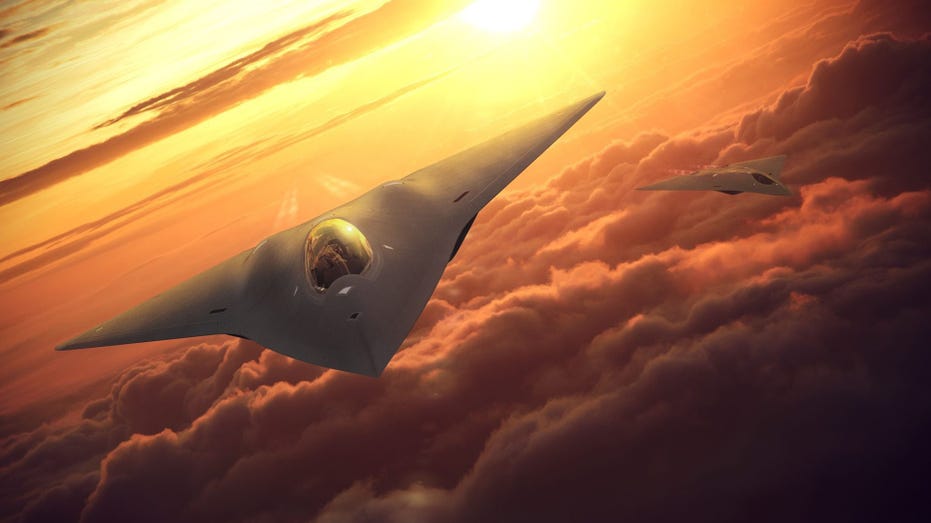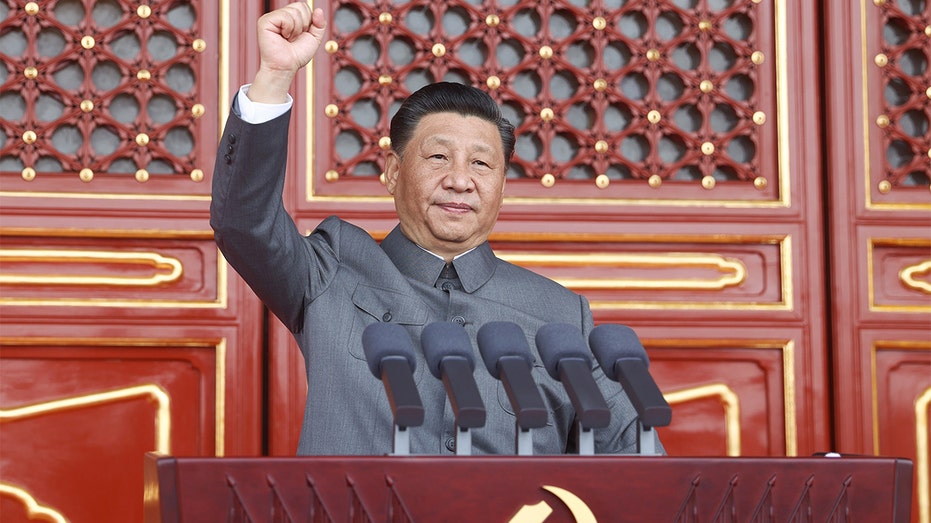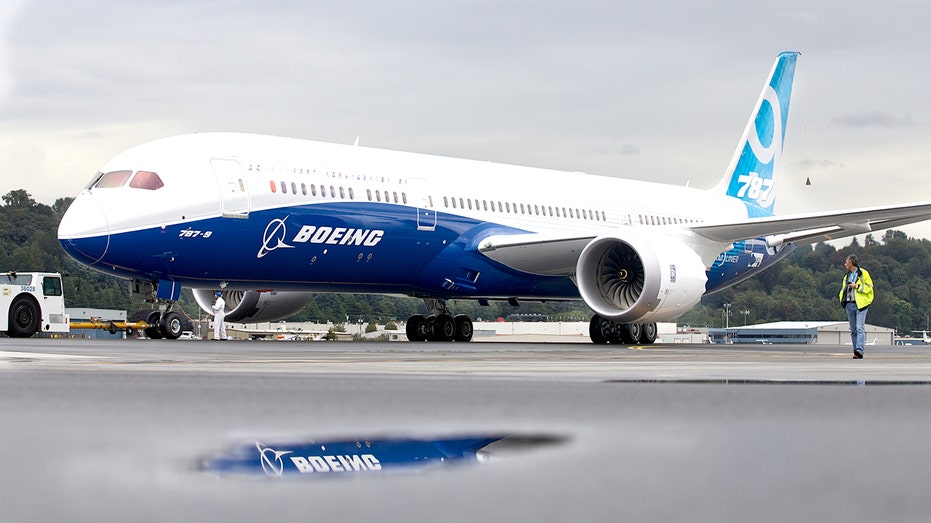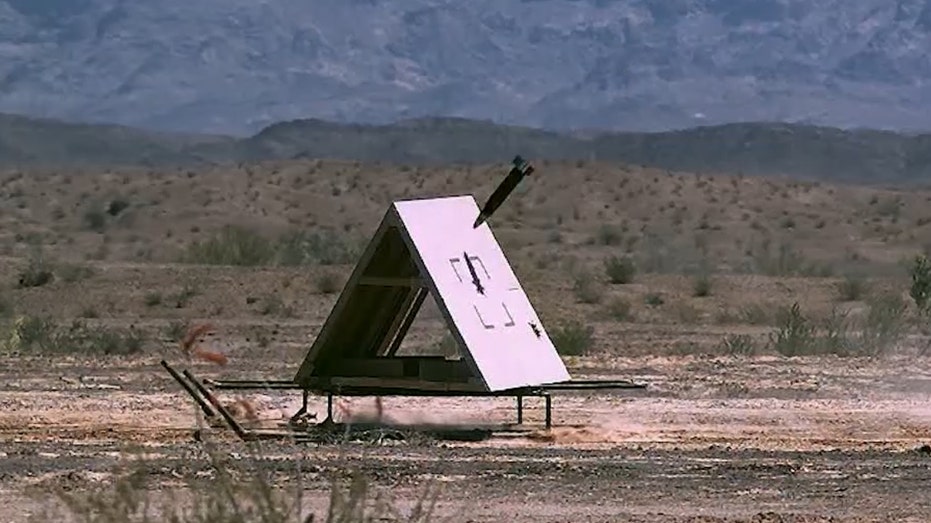Major US defense contractors maintain China ties despite increasing tensions
Raytheon, Bell and Boeing maintain relationships with firms tied to the Chinese government
Journalist exposes 'woke' training at Raytheon
Chris Rufo joins 'Tucker Carlson Tonight' to discuss the defense contractor's race trainings.
Several of the largest defense contractors in the U.S. have ties to Beijing, a Fox News Digital review found.
Raytheon, Bell Flight, and Boeing — three American powerhouse defense firms — continue to maintain relationships with firms tied to the Chinese government, while Lockheed Martin has business interests in the country.
Isaac Stone Fish, the CEO and founder of China risk consultancy company Strategy Risks, warned in a statement to Fox News Digital that defense contractors' Chinese ties present severe risks.
"Doing a relatively significant amount of business in China changes the risk profile now more than ever for any U.S. company, whether for compliance, cyber, reputation, security or other risks," Stone Fish said.
"Those risks are particularly critical for companies that safeguard U.S. national defense and security," he continued. "U.S. defense contractors need to better understand their risk exposure to China and the Chinese Communist Party, so they can reduce their China risks to better serve the needs of the U.S. military and national security."
BIDEN DOJ ENDING NATIONAL SECURITY INITIATIVE AIMED AT COUNTERING CHINA AMID COMPLAINTS ABOUT BIAS

The Air Force is prototyping what its future stealth fighter jets will look like. (Lockheed Martin) (Lockheed Martin)
A pair of Raytheon’s subsidiaries, Pratt & Whitney (P&W) and Collins Aerospace Systems, have ties to China and its military.
P&W is a prominent player in the Chinese market, with offices in Shanghai and Beijing, and reportedly powers two-fifths of China’s civilian helicopters with their engine. The company also has engines being used in the state-owned Commercial Aircraft Corporation of China (COMAC)’s ARJ21 regional jet aircraft. COMAC is loosely affiliated with the PLA.
CHRIS RUFO SLAMS RAYTHEON FOR ‘DEEPLY CONCERNING,’ ‘WOKE’ TRAINING ON RACE
The Raytheon subsidiary also has several joint ventures with Chinese entities, including China Aviation Industry Corporation (AVIC) and Xi’an Aircraft, another company on the NS-CMIC List.
AVIC is a conglomerate owned by the Chinese government with ties to the PLA and was placed on the Treasury Department’s Non-SDN Chinese Military-Industrial Complex Companies List (NS-CMIC List) and the Commerce Department’s Entity List.
Collins Aerospace Systems, Raytheon’s other subsidy doing business in the People’s Republic of China, has 15 locations and nine joint ventures in the country.
"For close to 40 years, Collins Aerospace has been demonstrating our commitment to China," their website reads. "Our growing presence in China has been made possible by our company’s significant investments in the country, as well as strong corporate and personal relationships that have been formed over the last three decades."
Their website also boasts the company’s "close relationships" with the Chinese government’s Ministry of Industry and Information Technology of China (MIIT), COMAC, AVIC, and the China Electronics Technology Company (CETC).

Xi Jinping, general secretary of the Communist Party of China CPC Central Committee, Chinese president and chairman of the Central Military Commission, delivers an important speech at a ceremony marking the 100th anniversary of the founding of the CP (Ju Peng/Xinhua via Getty Images / Getty Images)
Each of the Chinese companies has ties to the nation's military, and CETC, like AVIC, is on the NS-CMIC List. Collins Aerospace Systems also has joint ventures with PLA-tied entities, including AVIC subordinates Leihua Electronic Technology Research Institute and Shaanxi Aero Electric Co., and CETC subsidiary CETC Avionics.
Another contractor, Bell Textron, offers military-grade aircraft on their website and has a whole page dedicated to their "China Service Center": the Zhenjiang Bell Textron Aviation Services Center.
"Zhenjiang Bell Textron Aviation Services Center offers comprehensive maintenance, repair and overhaul services to our customers in the Greater China region, including Macao, Hong Kong, and Mongolia," Bell's website states. "Our in-country product and customer support engineers will ensure your aircraft is ready and operational at all times."
Bell also touts its Civil Aviation Administration of China (CAAC) "Part 145 certifications for holistic maintenance and overhaul" as well as the company's readiness "to provide return-to-service flights to customer-specific locations."

SEATTLE, WASHINGTON - SEPTEMBER 17: A Boeing 787-9 Dreamliner taxis after concluding its first flight September 17, 2013 at Boeing Field in Seattle, Washington. The 787-9 is twenty feet longer than the original 787-8, can carry more passengers and mo (Getty Images)
Additionally, the firm advertises "aircraft upgrades, mods, reconfigurations and customization" that includes "Aircraft Reconfigurations for Parapublic, Utility, Corporate, EMS, Training, and other specific missions" as well as "Mission Kit Installations, e.g. Hoists, Fast Ropes, Cargo Hooks, EMS Systems, Airborne Surveillance, Auxiliary Fuel Cell Systems, Float Kit, Mission Radios, etc."
A spokesperson for Bell told Fox News Digital that as "a U.S.-based company, Bell does not do any military business in China and remains committed to supporting safe operations for the civilian helicopter communities in China, including corporate, energy, health and public safety."
Boeing has been an American titan in the defense world for over a century — advertising attack helicopters and other military vehicles on their website — and has been regularly conducting at least commercial business in China since 1972.
With four joint ventures and three subsidiaries in the country, Boeing boasts their company's "planes comprise more than 50% of all commercial jetliners operating in China" and that China "has a component role on every current Boeing commercial airplane model — the 737, 747, 767, 777 and 787 Dreamliner."
The company also formed a joint venture in China "for interior parts and composite structures" in the form of Boeing Tianjin Composites in 1999, established the Boeing Research & Technology China a decade later, and in 2018 delivered "its 2,000th airplane to China, a 737 MAX 8 for Xiamen Airlines."
"Boeing Research & Technology China established operations in the country in 2009," the company's "Boeing in China" document reads. "Currently it has research collaborations with 23 major universities, seven national institutes and three research centers, with focuses including biofuel, air traffic management technologies, materials, aviation services, cabin technology and manufacturing."
Additionally, Boeing touts it is the "No. 1 international customer of China’s commercial aviation manufacturing industry" and that "1/4 of Boeing production line is delivered to Chinese customers."
Boeing's ties to the Chinese government don't stop solely in the business world, though; the company hosted Chinese President Xi Jinping in Everett, Washington in 2015 — which Xi flew into in his presidential Boeing 747-400 jet, according to a company video on the page.
A spokesperson for Boeing told Fox News Digital in a statement that the company does "not sell Boeing defense platforms to the Chinese military."
"China is an important market for our commercial business, and the US-built aircraft we export into that market supports the economy including tens of thousands of US jobs directly, as well as more than 1 million American workers in all 50 states across our supply chain," the spokesperson said.
Sikorsky, a subsidiary of another American defense powerhouse, Lockheed Martin, has been an active face in the Chinese business scene for over three decades. Lockheed acquired Sikorsky in 2015.

Raytheon Excalibur S round approaches target during a test. (Raytheon)
A spokesperson for Lockheed Martin confirmed to Fox News Digital that Sikorsky's business in China is limited to the sale of spare parts for civilian helicopters and that the country's recent cybersecurity law, which experts have warned could expose U.S. firms' data to Chinese authorities, would essentially only target sales receipts and other business-facing items to be turned over, not schematics and plans.
The State Department warned in 2020 that the CCP's national Military-Civil Fusion (MCF) strategy was targeting several "Key technologies" including "aerospace technology."
China’s MCF strategy aims to take private-sector and academic technological innovations and leverage them into advancing the country’s military and economic development.
The strategy also aims to position China’s PLA as a "world-class military" by 2049.
CLICK HERE TO GET THE FOX NEWS APP
Raytheon didn't return Fox News Digital’s request for comment.





















